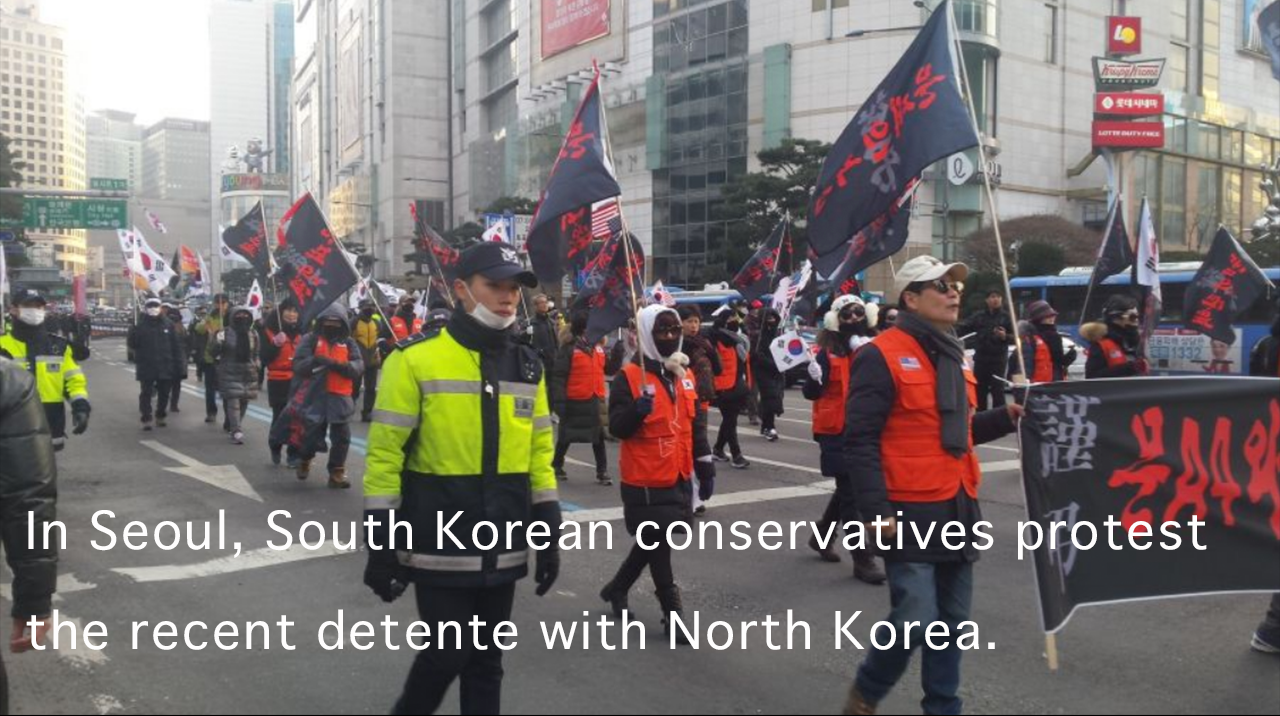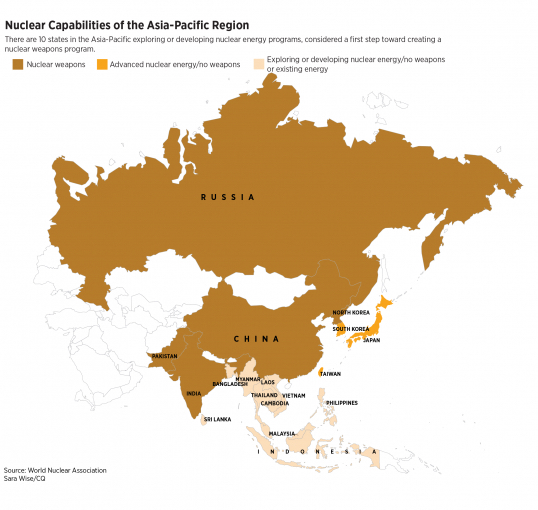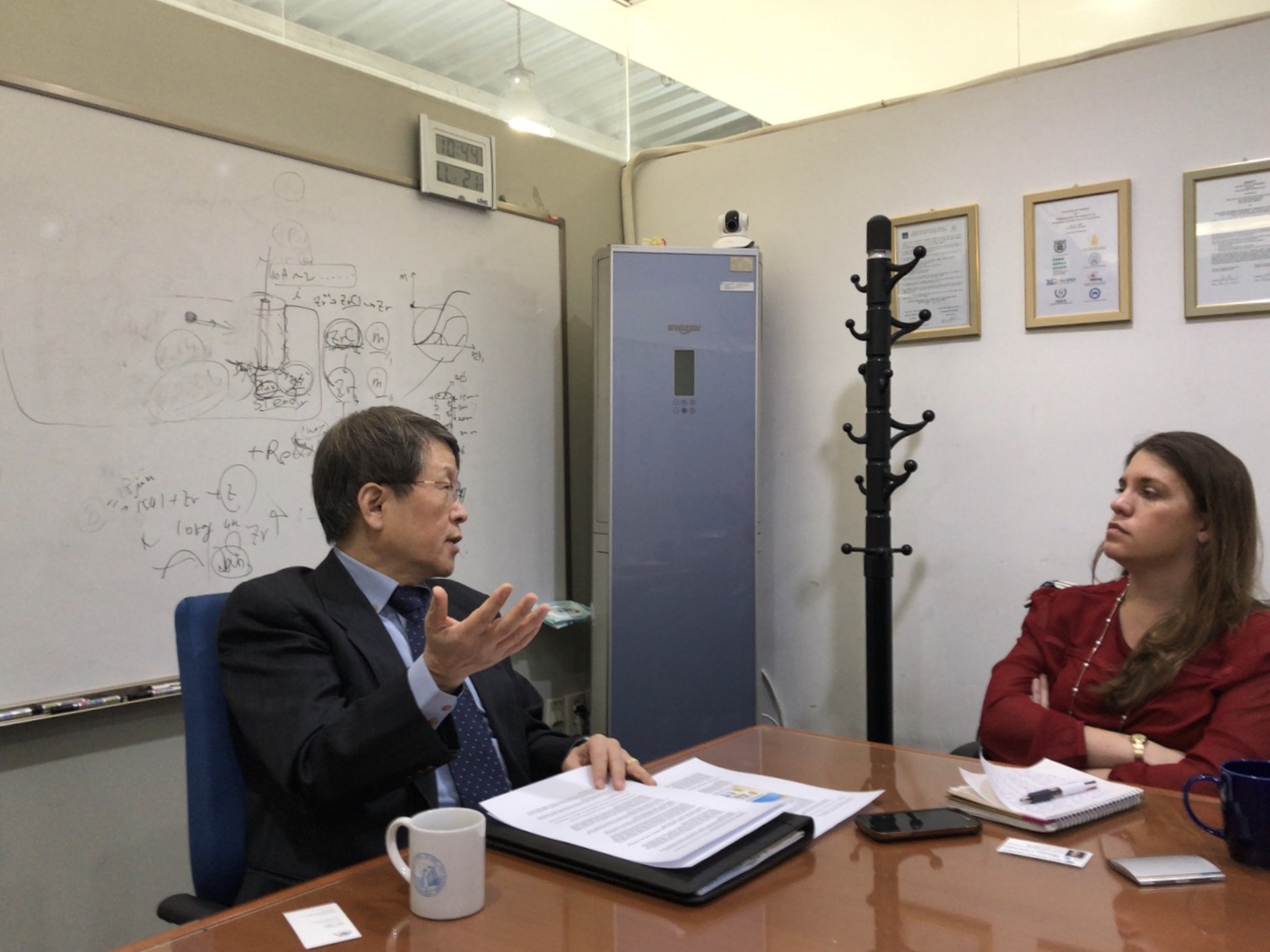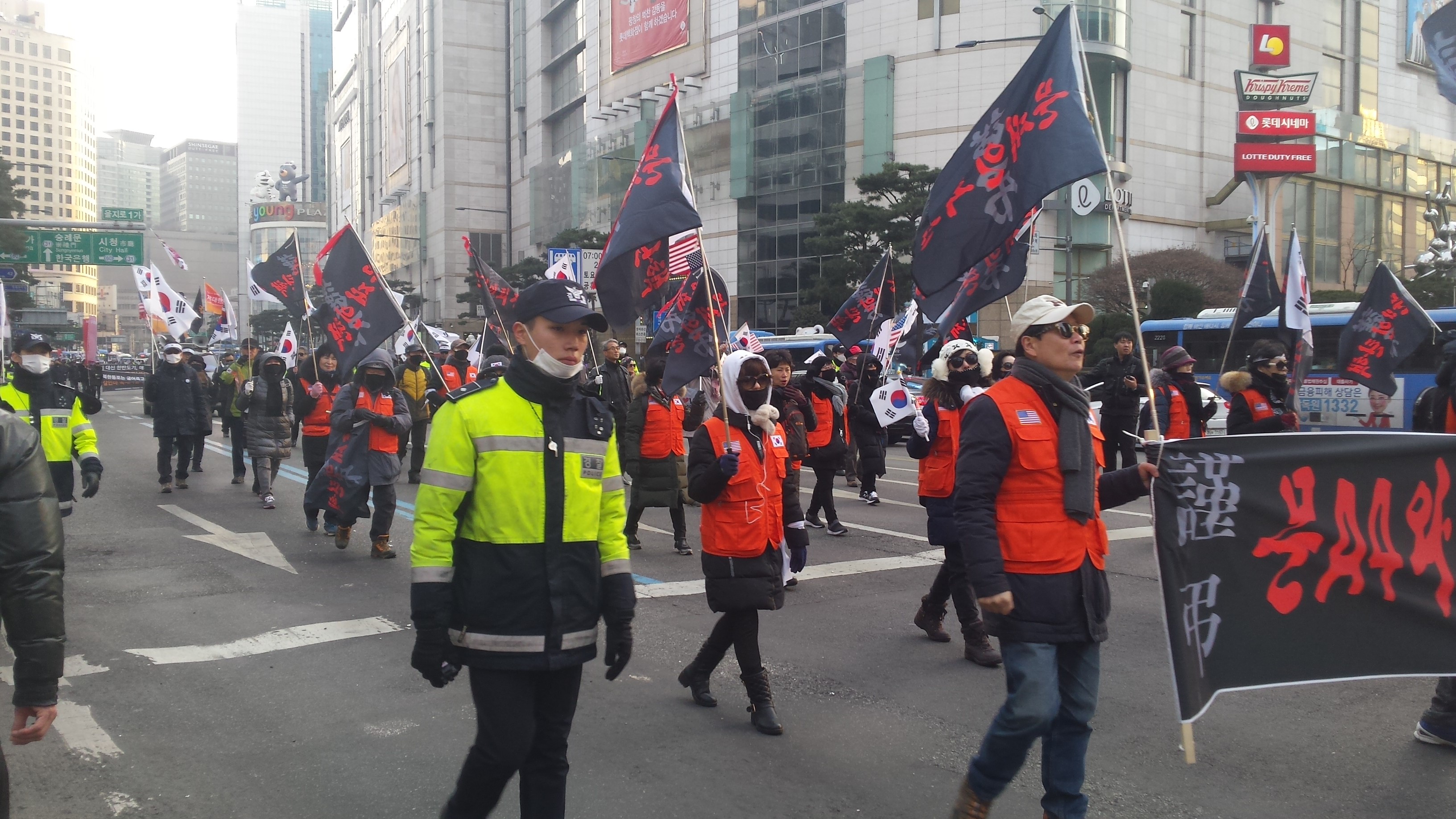
As the United States and South Korea search for a way to resolve the North Korean nuclear weapons crisis, another possible nuclear confrontation is brewing beneath the radar in South Korea. Though currently consigned to the opposition following multiple corruption scandals, South Korea's conservatives are hardening and becoming more hawkish during their time in the political wilderness. Though they are currently calling for the redeployment to South Korea of U.S. nuclear weapons, concerns are being raised that if South Korean conservatives lose faith in the surety of the U.S. alliance, they could be tempted to pursue an independent nuclear deterrent—something South Korea has long had the technical know-how to do. If the liberal administration of President Moon Jae-in is unsuccessful in persuading North Korea to give up its nuclear weapons, the question becomes what policy will South Korean conservatives pursue if and when they return to power.
Image credits: Jayine Chung and Rachel Oswald.





